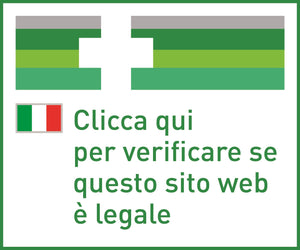Description
Pain of various origins and nature (headache, toothache, neuralgia, osteo-articular and muscular pain, menstrual pain). Adjuvant in the symptomatic treatment of feverish and flu states.
Active Ingredients
Each capsule contains: Active substance : ibuprofen 200 mg. For a full list of excipients, see section 6.1.
Excipients
Macrogol 600, potassium hydroxide, gelatin, partially dehydrated liquid sorbitol, purified water, Ponceau 4R (E124), lecithin, fractionated coconut oil.
Dosage
Adults and adolescents over 12 years: 1–2 capsules, 2–3 times a day. Do not exceed the dose of 6 capsules per day. If the use of the medicine is necessary for more than 3 days in adolescents, or in case of worsening of symptoms, a doctor should be consulted. Do not exceed the recommended doses; in particular, elderly patients should stick to the minimum dosages indicated above. Take the product on a full stomach.
Warnings
• In asthmatic patients the product should be used with caution, after consulting a doctor. • Patients whose activity requires alertness should be cautious if they notice drowsiness, dizziness or depression during therapy with ibuprofen. • The use of Moment, as with any drug inhibiting the synthesis of prostaglandins and cyclooxygenase, is not recommended in women intending to become pregnant. • The administration of Moment should be suspended in women who have fertility problems or who are undergoing investigation of fertility. • The use of Moment should be avoided in conjunction with NSAIDs, including selective COX-2 inhibitors. • Undesirable effects may be minimised by using the lowest effective dose for the shortest duration necessary to control symptoms (see paragraphs below on gastrointestinal and cardiovascular risks). • Cardiovascular and cerebrovascular effects: Clinical trial and epidemiological data suggest that use of ibuprofen, particularly at high doses (2400 mg/day) and in long term treatment, may be associated with a small increased risk of arterial thrombotic events (for example myocardial infarction or stroke). Overall, epidemiological studies do not suggest that low dose ibuprofen (e.g. ≤ 1200 mg/day) is associated with an increased risk of myocardial infarction. • There is a risk of impaired renal function in dehydrated adolescents. • Elderly: Elderly patients have an increased frequency of adverse reactions to NSAIDs especially gastrointestinal bleeding and perforation which may be fatal (see section 4.2). • Gastrointestinal bleeding, ulceration and perforation: Gastrointestinal bleeding, ulceration and perforation, which can be fatal, have been reported with all NSAIDs at anytime during treatment, with or without warning symptoms or a previous history of serious GI events. • The risk of GI bleeding, ulceration or perforation is higher with increasing NSAID doses, in the elderly and in patients with a history of ulcer, particularly if complicated with haemorrhage or perforation (see section 4.3). These patients should start treatment on the lowest dose available. Concomitant use of protective agents (e.g. misoprostol or proton pump inhibitors) should be considered for these patients, and also for patients taking low dose aspirin or other drugs likely to increase GI risk (see below and section 4.5). • Patients with a history of GI toxicity, particularly when elderly, should report any unusual GI symptoms (especially GI bleeding) particularly in the initial stages of treatment. • Carefully monitor patients receiving concomitant medications which could increase the risk of ulceration or bleeding, such as oral corticosteroids, anticoagulants such as warfarin, selective serotonin reuptake inhibitors or anti-platelet agents such as aspirin (see section 4.5). • If gastrointestinal bleeding or ulceration occurs in patients receiving Moment, the treatment should be withdrawn. • NSAIDs should be given with caution to patients with a history of gastrointestinal disease (ulcerative colitis, Crohn's disease) as these conditions may be exacerbated (see section 4.8). • Caution is advised before initiating treatment in patients with a history of hypertension and/or heart failure as fluid retention, hypertension and oedema have been reported in association with NSAID therapy. • Serious skin reactions, some of them fatal, including exfoliative dermatitis, Stevens–Johnson syndrome, and toxic epidermal necrolysis, have been reported very rarely in association with the use of NSAIDs (see section 4.8). Patients appear to be at highest risk early in the course of therapy: the onset of the reaction occurs in the majority of cases within the first month of treatment. Moment should be discontinued at the first appearance of skin rash, mucosal lesions or any other sign of hypersensitivity. • MOMENT capsules contain: – sorbitol: patients with rare hereditary problems of fructose intolerance should not take this medicine; – Ponceau 4R (E124): may cause allergic reactions.
Conservation
Store below 25°C.
Contraindications
• Do not administer to children under 12 years of age. • Pregnancy and breastfeeding. • Hypersensitivity to the active substance, to other antirheumatics (acetylsalicylic acid, etc.) or to any of the excipients. • Active or severe gastroduodenal ulcer or other gastropathies. • History of gastrointestinal bleeding or perforation related to previous active treatments or history of recurrent peptic ulcer/haemorrhage (two or more distinct episodes of proven ulceration or bleeding). • Severe hepatic or renal insufficiency. • Severe cardiac insufficiency.



